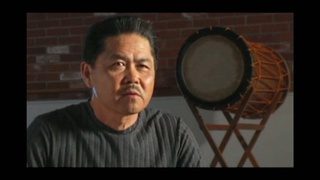Interviews
Didn’t speak Japanese until moving to Japan
At the time I never, never spoke Japanese in Minot, I don’t remember talking, yeah in Japanese, or…we always conversed in English and so until we landed in Yokohama and then even then you know, I don’t know, I was looking at my brother and, you know I think I remember saying something like, oh my! Oh my! Hunk of baloney or something. [laughs] Yeah, and then at the boat, my uncle came up to the deck, you know came up, and then he asked, I guess he asked in Japanese, are you Suto? And I remember I answering yes, and you know that’s [laughs] yeah, that the first conversation, yeah, that I had in [with] Japanese people we had, in Japanese.
Date: June 17, 2008
Location: California, US
Interviewer: Janice Tanaka
Contributed by: Watase Media Arts Center, Japanese American National Museum









